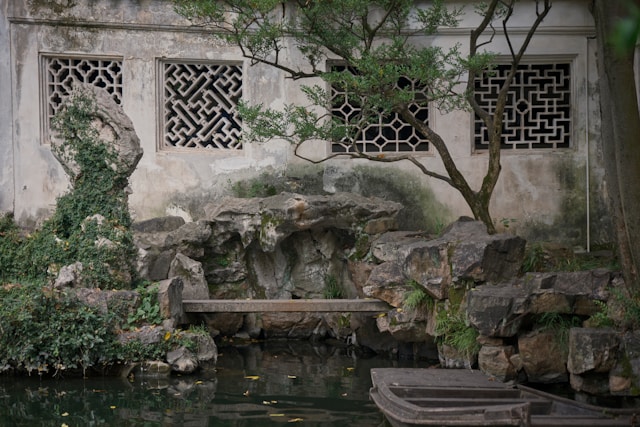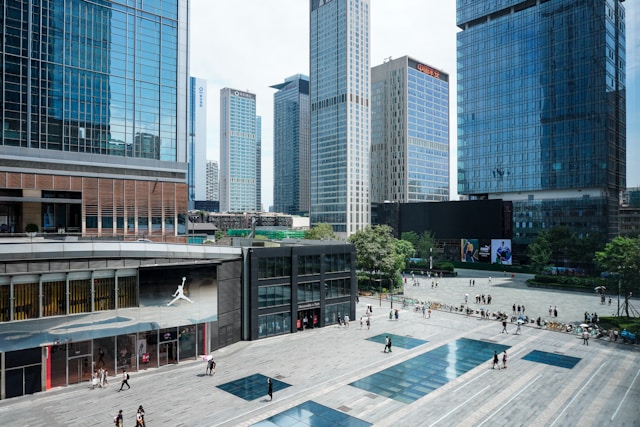
In 2021, China’s Supreme Court’s Guiding Opinions on the Professional Judges Meeting set out the latest requirements for the implementation of this Tink-Tank mechanism.
In the past five years, the Supreme People’s Court (SPC) has been committed to granting judges the power to try cases independently, with necessary intellectual support and monitoring. The Professional Judges Meeting reflects an important aspect of the SPC’s efforts. In January 2021, the SPC issued a document, setting out the latest requirements for the implementation of this mechanism.
I. Why do Chinese courts need the Professional Judges Meeting?
The Professional Judges Meeting is a mechanism to provide intellectual support for judges.
Traditionally, it is the system of judgment review and approval that gives intellectual support for Chinese judges, i.e., before a judge officially renders a judgment, the director of the tribunal where the judge serves has the power to review and approve it. Sometimes, the adjudication committee or the president of the court will also exercise such power to review and approve. For a detailed discussion of the system of judgment review and approval, please refer to our earlier post “Chinese Judges Shall Undergo Review and Approval Before Rendering Judgments”.
This traditional mechanism aims to, on the one hand, assist judges in their work, and on the other hand, supervise judges effectively, but has also been criticized for a long time.
Critics believe that this results in a weird situation where those who have not heard the case have a final say in the judgment, which goes against the basic principles of the procedural law. In addition, this also gives an opportunity to the powerful to influence the court decisions.
To tackle this problem, the SPC proposed in the judicial reform started in 2014 that judges should resume their independence in hearing cases. At the same time, the SPC does not want to see a quality lowering of judges’ work due to the lack of assistance. Therefore, the SPC is also looking for alternative mechanisms.
The SPC has put forward several alternative mechanisms, for example, the similar cases system, according to which, judges are required to refer to similar cases, and the judgment rendering standards must be consistent with those of specific similar cases. To learn more about the Similar Case System in China, please read our earlier posts.
The Professional Judges Meeting, as one of the alternative mechanisms, can provide advice for judges without intervening judicial independence.
The SPC proposed the idea of Professional Judges Meeting in 2015 for the first time. After the preliminary exploration by local courts, the SPC summed up a preliminary plan in 2018. In January 2021, the SPC put forward the most specific measure so far, that is, the Guiding Opinions on Improving the Working Mechanism of the Professional Judges Meeting for People’s Courts (關(guān)于完善人民法院專業(yè)法官會議工作機制的指導意見) (hereinafter “the Opinions”).
Highlights of the Opinions are introduced below.
II. How does the Professional Judges Meeting work?
1. What is the Professional Judges Meeting for?
The Professional Judges Meeting is set up within the court, and dedicated to providing advice to the one-judge tribunal, the collegial panel, the director of the trial division, the adjudication committee, and the president of the court.
2. Who will serve at the Professional Judges Meeting?
The Professional Judges Meeting is composed of judges. The chairperson of the Professional Judges Meeting may invite other staff of the court to attend the meeting as observers.
Each court may decide on its own the organization, personnel composition and discussion topics of its Professional Judges Meeting.
3. What issues can the Professional Judges Meeting provide advice on?
The Professional Judges Meeting can discuss the application of law in the case or the application of the evidence rules closely related to the fact-finding, as well as other matters when necessary.
In other words, the Professional Judges Meeting can discuss the legal issues in the case, but cannot provide opinions for the fact-finding of the collegial panel.
4. What cases will be submitted to the Professional Judges Meeting for discussion?
The following cases will be submitted to the Professional Judges Meeting if:
(1) the one-judge tribunal considers it necessary to be submitted for discussion;
(2) a majority opinion cannot be reached within the collegial panel, or the judge who holds a dissenting opinion deems it necessary to be submitted for discussion;
(3) it is necessary to unify the application of law for a certain type of cases among tribunals, trial divisions, professional trial fields or various courts within the same jurisdiction;
(4) it is major, difficult and complex cases;
(5) the court considers it necessary to be submitted for discussion.
The major, difficult and complex cases mentioned in item (4) above include:
i. cases involving group disputes, which may affect social stability;
ii. cases that are difficult, complex and have a significant impact on society;
iii. cases that may conflict with similar judgments of this court or higher court;
iv. cases where the unit or individual concerned reports that the judge has perverted the law when making a judgment.
It is worth noting that the main cases discussed by the Professional Judges Meetings of courts at different levels are also different.
China’s courts are divided into four levels: primary courts, intermediate courts, high courts and the supreme court, and the litigation is subject to the system of the second instance being the final judgment.
Therefore, the courts of first instance and last instance for most cases are primary and intermediate courts, and thus their Professional Judges Meetings will mainly deal with category (1) and (2) cases, that is, to provide advice for specific cases.
There are comparatively fewer cases before high courts and the SPC. High courts and the SPC are mainly responsible for unifying the standards of application of law province-wide (high courts) or nation-wide (the SPC), as well as supervising and instructing courts at the lower level. Therefore, their Professional Judges Meetings will mainly deal with category (3) cases, that is, to provide a unified standard of application of law for a certain type of cases.
5. Who can submit a case to the Professional Judges Meeting for discussion?
Judges in the one-judge tribunal and judges holding dissenting opinions in the collegial panel can submit cases to the Professional Judges Meeting.
When performing the duty of supervising judges in case hearing, the director of trial division and the court president may also submit cases to the Professional Judges Meeting.
6. What is the effect of the opinions of the Professional Judges Meeting?
The opinions of the Professional Judges Meeting are not legally binding; instead, they are for the reference of the one-judge tribunal, the collegial panel, the direction of trial division, and the court president.
The opinions of the Professional Judges Meeting shall be reconsidered by the one-judge tribunal and the collegial panel in a timely manner. If, after reconsideration, the one-judge tribunal and the collegial panel still disagree with the Professional Judges Meeting, or they still consider it difficult to make a decision, they should submit the case to the court president who will then submit it to the adjudication committee for discussion and decision.
Contributors: Guodong Du 杜國棟









